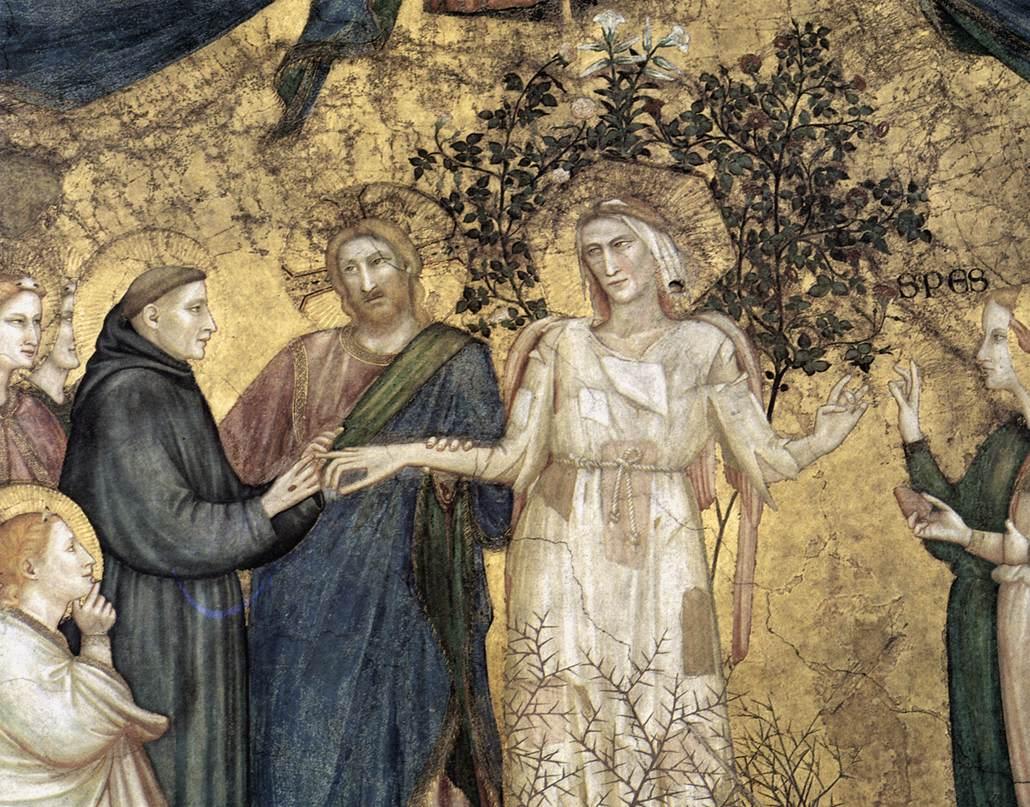Blessed John of Parma
A love story to poverty.

Blessed John of Parma is probably the author of the “Sacrum commercium,” a 13th-century allegorical romance between St. Francis of Assisi and poverty. Poverty, in his tale, is personified as “the Mistress of Nations become as a Widow," who has been banished to a mountaintop since “All her Friends have despised her, and are become her Enemies.”
According to the text, poverty was present in the Garden of Eden in the form of mankind’s nakedness, and it left when Adam donned a fig leaf: “Adam had been robbed of the Likeness of God.” Francis woos poverty back and she gives him a lovely blessing, but my favorite part occurs before he even meets her, when he is seeking her in the city among people who don’t understand:
Francis asked of those who stood about, he questioned those who met him, saying: “Saw ye her whom my Soul loveth?” But his speech was dark to them as an alien tongue, and, not understanding him, they answered: “We know not what thou sayest: speak to us in our own tongue, and we will answer thee.”
For there was not at that time any word or sign in the language, by which the Children of Adam could discourse together of Poverty. They hated her then as they hate her now, nor could they speak with patience to one who sought her. So they answered to him that this thing was unknown to them, and that they had no knowledge of what he sought.
Then, said the Blessed Francis, I will go unto the Great and the Wise, and ask them, for they known the Ways of the Lord and the Judgements of God. But these only answered him yet more roughly, saying: “What is this new doctrine which thou bringest to our ears? We rather enjoy the delights of life and abound in riches, for the span of our life is short and tedious, and in the end of a man there is no remedy. Therefore we know nothing better than to eat and drink and be merry while there is still time.”
But the Blessed Francis, hearing these things, marveled in his Heart and gave Thanks to God, saying: “Blessed art Thou, O Lord God, Who hast hid these things from the Wise and Prudent, and revealed them unto Babes.”